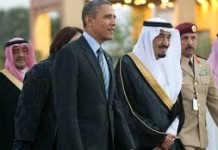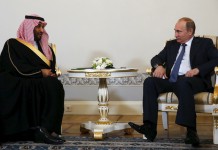Context
.jpg) Accepting responsibility for the recent terrorists attacks in the country, Tehreek-e-Taliban Pakistan (TTP) has linked its attacks to US drone strikes that have been conducted against them, which TTP claims have also caused civilian causalities. Additionally, the TTP spokesman Azam Tariq has accused the Pakistan army and the government to be complicit in these attacks. The TTP’s real attempt is to complicate the Pakistan-US relations as well as civilian-military relations in Pakistan. This analysis examines the dangerous ramifications of this linkage.
Accepting responsibility for the recent terrorists attacks in the country, Tehreek-e-Taliban Pakistan (TTP) has linked its attacks to US drone strikes that have been conducted against them, which TTP claims have also caused civilian causalities. Additionally, the TTP spokesman Azam Tariq has accused the Pakistan army and the government to be complicit in these attacks. The TTP’s real attempt is to complicate the Pakistan-US relations as well as civilian-military relations in Pakistan. This analysis examines the dangerous ramifications of this linkage.
Analysis
When the US drone strikes initially started in FATA the Pakistan’s government officially protested and condemned the attacks as a violation of its sovereignty. Moreover, the governments message to Pakistan’s citizens was that these strikes are conducted without its approval. However, overtime it became apparent there was a tacit agreement between Pakistan and US under which these strikes were taking place.
According to Long War Journal 35 drone strikes took place in 2008, 53 in 2009 and so far 58 have occurred in 2010. The number and timing of the drone attacks have had a peculiar pattern in the past. They have usually happened when Pakistan army’s struggle against the extremists had receded. Additionally, drone strikes have also occurred when Pakistan’s military has entered in to, or there exists a chance that it might pursue peace agreements with Taliban. From the perspective of the US, whenever peace deals were signed on the Pakistan’s side, the agreements complicated the war in Afghanistan.
A controversy was triggered recently when some Pakistani politicians made official remarks pointing out that the Shahbaz airbase in Jacobabad could not be used for rescue and relief efforts since it was under lease to US for conducting drone strikes. Subsequently American ambassador to Pakistan clarified that this is not the case. However, Senator Diane Feinstein (D-California) who is also the chair of the Senate Select Committee on Intelligence had claimed in 2009 that the drones are actually based in Pakistan and are launched from there against their targets and thus sovereignty of Pakistan is not being violated.
Due to criticism from the Pakistani government, US eventually established joint operation centers where some level of coordination does take place to conduct the strikes. According to media reports, Pakistani officials are privy to live feeds from the drone surveillance as well.
In the recent past the drone attacks have become more routine and Pakistan’s government has ceased protesting as well. Their efficacy in eliminating extremist leadership is no longer questioned but the civilian causalities that result from these attacks remain controversial. According to Pakistani public opinion, the drone strikes stoke more extremism than it abates.
The drone strikes remain deeply unpopular in the country. In a recently held Pew Research Center Survey on the attitude of Pakistani public on extremism, nine out of ten respondents indicated drone strike kill too many civilians while 93% of the people, who were aware of the drone tactics, consider it as a bad act.
In the aftermath of the floods, Taliban are strategically building upon a public sentiment that the government has become so subservient to the foreign powers that it overlooks the interest of its own people and therefore its legitimate for it to target the security apparatus of the country.
The linkage between terrorist attacks and drone strikes has the potential to further polarize the political set-up of the country. The civilian set-up has been unable to organize an effective rescue and relief operation and Taliban appear to be attempting to capitalize on the public resentment against the system. Furthermore, the terrorists may have also felt threatened by the recent resurge in the popularity of Pakistan army, and linking terror attacks to drone strikes will hurt the reputation of the military. It’s the military that has the final say when it comes to the defense and security matters of the country. And as the drone strikes are unlikely to end, TTP is attempting to put the burden of the blame on the military, for the devastation they are causing.
Tell Us What You Think
Feedback@politact.com



